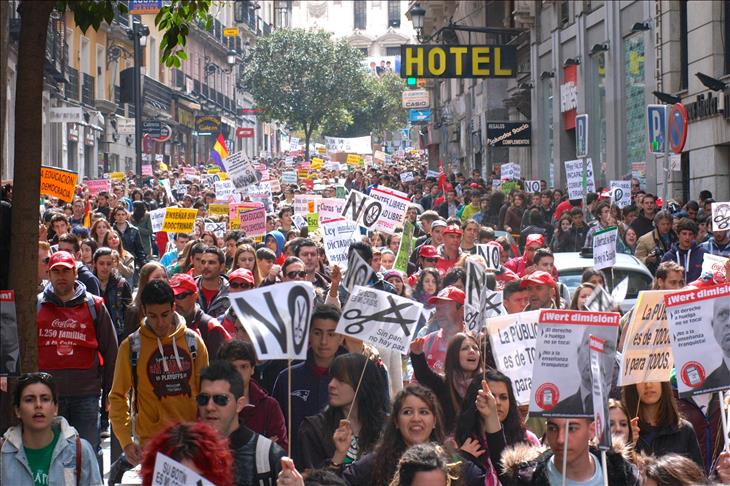
By Charles Newbery
BUENOS AIRES, Argentina
Millions of workers walked off the job in Argentina Thursday to demand higher wages and more security as inflation and crime rise.
While there had been expectations of violence and vandalism during the strike, little was reported. Police fired rubber bullets and held back protesters at a roadblock on the outskirts of Buenos Aires, but few other incidents came about.
“There was a high turnout” for the strike, Hugo Moyano, who runs an anti-government faction of the General Labor Confederation, the country’s largest union umbrella group, said in a televised press conference.
He estimated that “millions” participated in the strike to protest President Cristina Fernandez de Kirchner’s failure to contain inflation, which private estimates suggest could surpass 35 percent this year, among the highest in the world.
The striking workers want wages to rise in line with inflation to conserve purchasing power.
But the government is pushing to limit the increases to 30 percent to contain consumer prices and prevent job losses as the economy slows. The International Monetary Fund said this week that it expects the economy to grow 0.5% this year, down from 4.3% in 2013. Many economists say that a recession is around the corner in the third largest economy in Latin America.
Moyano said the strike was a demonstration of people’s “anger and disenchantment” with the Fernandez de Kirchner administration for failing to adequately respond to their demands for a plan to reduce inflation, fight crime and cut tax pressure.
“I hope that the government is smart enough to respond to our claims,” Moyano added.
Streets were quiet as buses, trains, trucks and subways didn’t operate.
This led Omar Plaini, an opposition congressman, to compare the scene in Buenos Aires to a typical Sunday, according to comments in a televised press conference.
Indeed, people walked on blocked-off highways for the lack of traffic. Many stayed at home, unable to get to work without public transportation.
The government tried to minimize the strike’s consequences.
The real impact of the strike, said Jorge Capitanich, the president's chief of staff, at a press conference, was that people couldn’t get to work because of the roadblocks at access points to Buenos Aires. Union leaders, he said, were acting like “feudal lords from the Middle Ages.”
There was no estimate from the government on strike participation.
Daniel Scioli, the governor of Buenos Aires province and a likely candidate for president in 2015, said that instead of strikes, Argentina needs “proposals.”
“Today it is fundamental to produce more to live better,” said Scioli said in a televised press conference.
Moyano responded to the criticism, saying that he would have preferred to not hold the strike.
“But we cannot allow the government to not listen to the needs of the workers,” he said. “I want to humbly ask that the government pays attention to what the people have said with this measure.”
englishnews@aa.com.tr


